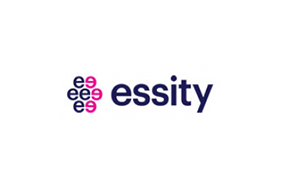New Hygiene and Health Survey by Essity Identifies the Largest Threats to the Future of Well-Being
Published 10-20-22
Submitted by Essity
Originally published on Essity.com
Poor hygiene standards in public spaces, overall worry for global health threats, knowledge gaps and taboos in discussions around health and hygiene - these are just some of the barriers to well-being identified in the Global Hygiene and Health Survey 2022 conducted by global hygiene and health company Essity. The findings are based on responses from more than 15,000 people world-wide with the aim to find healthier solutions for future generations.
The Global Hygiene and Health Survey 2022 focuses on the future of well-being as well as the knowledge gap around issues of hygiene and health. By comparing current behaviors and attitudes of people towards well-being with how they would like to live in the future, several gaps are identified in areas such as personal care, caregiving, health worries and sustainable consumption.
“The world is evolving and changing in rapid speed. New pandemics and other global challenges affect our health and well-being. We have conducted this survey as we want progress for people’s well-being and raise awareness of the importance of hygiene and health and its link to well-being. Also, by looking at the future of well-being we aim to break barriers for well-being and find solutions for a healthier next generation”, says Joséphine Edwall Björklund, Senior Vice President, Communications at Essity.

One of the surveyed areas is public spaces. When it comes to hygiene standards in public spaces, only 1 in 4 say they feel comfortable about hygiene standards in public bathrooms and 3 in 10 in public transport. Out of these, seniors feel the most uncomfortable about hygiene standards in public spaces, especially in public washrooms as only 13% of people aged 66-80 years old claim to feel comfortable about hygiene standards in these venues. A majority also expressed higher expectations on the hygiene standards in public bathrooms after COVID-19. Furthermore, there are higher demands on the cleanliness, accessibility and smart solutions such as connected washroom devices.
Improving hygiene standards in public places may also have other positive effects. According to the study, 38% of the respondents say that improvement of hygiene standards in public spaces would make the biggest difference in helping to stop the spread of bacteria resistance to antibiotics. In fact, the worry about antimicrobial resistance (AMR) has increased since 2019 when 46% expressed concern. Today more than half of the respondents (54%) are concerned of AMR as a threat to public health where they live. This can be compared to pandemic outbreaks, which 63% are worried about, a slight decrease since 2020 (70%), but still higher than prior to the outbreak of Covid-19 when only 43% experienced this as threat to public health.
Besides poor hygiene standards in public spaces and global health threats, lack of knowledge is another concern related to the future of well-being. When asked a set of 12 commons myths about health and hygiene, an average of 1 in 2 (51%) answered wrong or don't know. Also, there are still unfortunately stigmas linked to some areas. For example, 10% going through menopause say they avoid talking about it. Lack of knowledge and dialogue can easily result in stigma and reluctance to discuss health and hygiene, making conditions such as menopause taboo.
“The survey results shows that accessible health care, education and dialogues are areas that all need to be addressed to improve health for both societies and individuals. For many years Essity has been educating about the importance of personal well-being and preventive care, often through partnerships with organizations such as UNICEF in Mexico to raise awareness on a global scale. We will maintain our focus on providing smart solutions that contribute to personal and public health and hygiene, as well as continue to talk about personal hygiene conditions to break stigmas and taboos. We encourage other actors to join us in our efforts”, says Joséphine Edwall Björklund, Senior Vice President, Communications at Essity.
As an example, since 2016 Essity and its feminine care brand in Mexico, Saba, are collaborating with UNICEF in Mexico to increase dialogue about menstruation and hygiene issues among young people in the country, reaching 7.5 million people. In 2019, the partnership expanded into “Hygiene is our Right”, encompassing Essity’s Tork brand with the aim to educate pupils and teachers in Mexico City about the importance of good hand hygiene, breaking taboos around menstruation and strengthening standards and guidelines to support good hygiene and health in schools. The partnership was extended for another three years in June 2022 after an additional 200,000 people, including 42,000 pupils and nearly 3,200 teachers all over Mexico was benefited from the partnership.
Click here to read the full survey
Excerpts from the survey
- 75% do not feel safe about hygiene standards in public bathrooms
- 71% do not feel safe about hygiene standards in local transportation
- 87% of people aged 66-80 years old do not feel safe about hygiene standards in public washrooms
- 57% expressed higher expectations on the hygiene standards in public bathrooms after COVID-19*
- 80% say that access to clean drinking water in future public spaces is essential for their well-being
- 79% say that a high standard of cleanliness in future public spaces is essential for their well-being
- 78% say that access to washrooms in future public spaces is essential for their well-being
- 66% say that access to basic personal hygiene products such as menstruation pads, diapers etc. is essential for their well-being
- 53% say that access to self-cleaning and odor-control toilets is essential for the future public washroom
- 40% say that access to connected washroom devices (e.g. toilet paper, soap…) is essential for the future public washroom
- 23% say that disease-detecting toilets (e.g. urine tests) is essential for the future public washroom
- 38% say that improvement of hygiene standards in public spaces (e.g. workplaces, public buildings, airports, public transport) would make the biggest difference in helping to stop the spread of resistance to antibiotics (i.e. antimicrobial resistance) where they live
- 54% are worried about antimicrobial resistance as a threat to public health where they live
- 63% are worried about pandemic outbreaks as a threat to public health where they live
- 54% don’t know that being active when menstruating can relieve pain
- 44% don’t know that maintaining a healthy weight can lower the risk of lymphedema
- 59% of men think that nothing can be done about pain and mood swings women experience during menstruation
- 75% think that women do not get pregnant once they reach menopause
- 10% going through menopause avoid talking about menopause
* Excerpt included from the 2020/21 Essentials Initiative Survey
New hygiene and health survey by Essity identifies the largest threats to the future of well-being

Essity
Essity
Essity is a leading global hygiene and health company that develops, produces and sells Personal Care (Baby Care, Feminine Care, Incontinence Products and Medical Solutions), Consumer Tissue and Professional Hygiene products and solutions.
Our vision is; Dedicated to improving well-being through leading hygiene and health solutions. The name Essity stems from the words essentials and necessities. Sales are conducted in approximately 150 countries under many strong brands, including the leading global brands TENA and Tork, and other brands, such as Leukoplast, Libero, Libresse, Lotus, Nosotras, Saba, Tempo, Vinda and Zewa. Essity has about 48,000 employees and net sales in 2017 amounted to approximately 12.8 bn USD (SEK 109bn, EUR 11.3bn). The business operations are based on a sustainable business model with focus on value creation for people and nature.
The company has its headquarters in Stockholm, Sweden, and is listed on Nasdaq Stockholm. Essity used to be part of the SCA Group.
About Tork
Tork is a brand of Essity. Essity is a leading global hygiene and health company that develops personal care, professional hygiene and consumer tissue products and solutions. Essity offers Tork paper towels, toilet paper, skin care products, facial tissue, wipers, wet wipes, napkins and other hygiene products for washrooms, wash stations, healthcare areas, food and beverage handling, food preparation, manufacturing and maintenance. For more information, visit http://www.torkusa.com/
More from Essity

